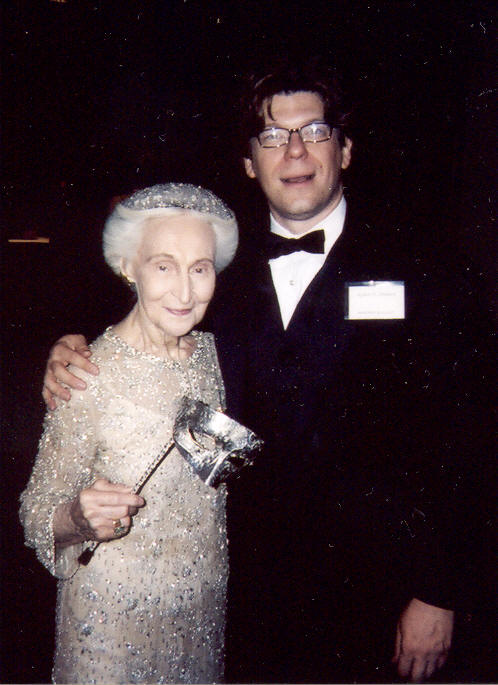Happy New Year, readers! Allow Etiquetteer to wish you a most Perfectly Proper New Year for 2016. Alas, Etiquetteer began 2016 inauspiciously with a faux pas - at least That Mr. Dimmick Who Thinks He Knows So Much did. Sunday began with the horrifying discovery that a party invitation was not, in fact, for Sunday, but for the day before. On the other hand, it could have been the week before. Etiquetteer remembers many many years ago getting a phone call from a party guest excited about the next evening's party; Etiquetteer felt badly having to explain that the party had already taken place the previous weekend. Etiquetteer is going to have to put That Mr. Dimmick through another course of Grovelling Abjectly. In the meantime, many of us could benefit from a New Year's resolution to check and double check our calendars.
And speaking of faux pas, it is interesting to note how fashions in manners and language come and go. Once upon a time the crème de la crème moving around in the beau monde would sprinkle their speech and correspondence with bits of French, but these days it really isn't considered le dernier cri of the bon ton. Malhereusement, it's more likely to make an unfavorable impression, as though one was too cultured, as though one was not comme il faut. (Can one be too cultured? One has only to look at Ashley Wilkes to learn the answer to that question.)
Although it might be malentendu or passé to resume the practice now, some phrases in French get bandied around enough that those who wish to appear au fait should be aware. Etiquetteer stumbled on many of these in The Book of Good Manners, by Frederick H. Martens (1923, published by Social Culture Publications):
- À la mode: in the fashion. Pie served à la mode means served with ice cream. To be dressed à la mode means to be dressed fashionably, not to be covered with ice cream (unless that becomes the fashion).
- Au contraire: on the contrary.
- Au fait: expert.
- Au naturel: in the natural state. Now used specifically to mean going without clothes. Please do not make the blunder of using au natural.
- Avec plaisir: with pleasure.
- À votre santé!: to your health, a popular toast.
- Beau monde: the world of fashion and its inhabitants.
- Bon ton: the fashion, or fashionable.
- Comme il faut: as it should be. Etiquetteer would say Perfectly Proper.
- Crème de la crème: the very best people.
- De rigeur: something not to be done without. Not to be confused with bon ton.
- Dernier cri: the last word.
- Divertissement: amusement or sport, something to divert one's attention. Not to be confused with a liaison.
- Double entendre: A naughty interpretation of an otherwise innocent word or phrase. Some 19th century etiquette books suggested that ladies did not even recognize double entendres.
- En déshabille or en petite tenue: in undress. Today this would be a grand way to say "bathrobe" or "pajamas." Not to be confused with au naturel, though Etiquetteer imagines that one might follow the other at a liaison.
- En route: on the way.
- Esprit de corps: team spirit.
- Faux pas: A mistake or error.
- Fille de joie: a courtesan or a "lady of easy virtue," or, really, not a lady.
- Flaneur: lounger.
- Gauche: awkward. Usually applied to someone's manners in public if they appear uncertain what to do.
- Grande dame: great society lady.
- Homme du monde: a man of fashion.
- Hors de combat: not in a condition to fight. Not to be confused with fille de joie.
- Je ne sais quoi: something indefinite that makes a difference.
- Laissez-faire: let things take their course.
- Les enfants terribles: misbehaving children, or those who always manage to do the wrong thing at the wrong time.
- Liaison: an alliance or an illicit connection, possibly with a fille de joie or an homme du monde, but most unlikely with a grande dame.
- L'inconnu: the unknown, possibly fatal after a liaison. Check with your doctor.
- Mal de mer: seasickness. Wags will sometimes refer to mal de belle-mère for mother-in-law trouble.
- Malentendu: a mistake.
- Malheureusement: unhappily.
- Passé: out of style.
Etiquetteer encourages you to save March 31, 2016, for the annual benefit of The Gibson House Museum, at which William Clendaniel will be honored for his work with Mount Auburn Cemetery, Massachusetts Historical Society, Friends of the Boston Public Garden, and the Trustees of Reservations. Etiquetteer is delighted to be serving as master of ceremonies for this occasion. More details to come, but some information may be found on the Gibson House event page.








